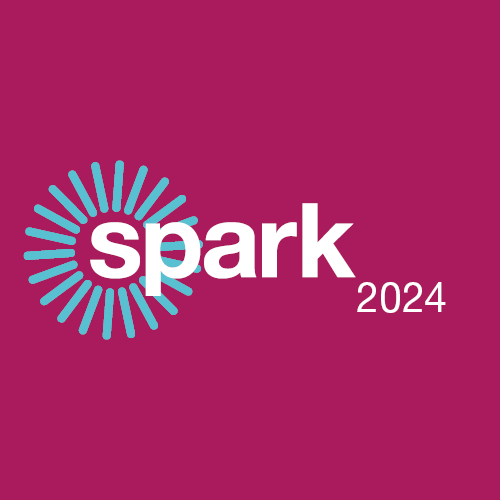My Journey as a COA Volunteer
A big thank you to Stan Capela of Heartshare Human Services of New York for this guest post!
My name is Stan Capela and I have been a COA Peer Reviewer and Team Leader since 1996. By the end of April, I will have completed 112 Site Visits. At the glorious age of 65 after devoting 40 years to the field of social services, I’m beginning to reflect back on my journey. I want to share my experiences with you in honor of Volunteer Month.
Before I share my story let me give you a snapshot of a Volunteers numerous responsibilities. First you are assigned a Site Visit. I started as a Peer Reviewer, working with a team of colleagues to review an organization. Ten years ago, I became a Team Leader and gained more responsibilities such as; making contact with the organization, setting up travel for the Peer Review team, developing the Site Visit schedule, assigning standards sections to the Peer Reviewers, and leading the entrance and exit meetings where the team interacts with the organization. The latter gives the Peer Review team a chance to introduce themselves to the organization and provide information about how the review will take place.
Wait! I’m getting ahead of myself. The entire review process begins with a Self-Study submitted by the organization and reviewed prior to their Site Visit. When the review team arrives on-site most of their time is spent reviewing case records, policies and conducting interviews. By the time the exit meeting occurs, the Team Leader and review team are ready to provide an overview of the organization’s strengths and challenges. If you want to learn more about the Site Visit process then I recommend reading Recipe for Conducting Quality Accreditation Site Visits which I co-authored with Joe Frisino, a member of the COA Standards Development team, in New Directions for Evaluation.
The decision to become a COA Volunteer starts with the simple question, why? And traveling through my many memories leads me to that answer.
I remember on my first Site Visit I was eating dinner and mistakenly bit into an olive and broke my tooth. The executive director of the organization we were reviewing offered to have one of her board members who was also a dentist patch me up. I declined since I felt it would be a conflict of interest. After all it was just a cracked tooth.
Another significant memory is when I interviewed two girls, one 8 years old and the other 12 years old. They both had been abused and while talking with them they expressed how much they appreciated the staff helping them get through their pain.
There was also a memorable exit meeting where I remember commenting on the risk management minutes and asking who was responsible for creating them. A woman stood up and I complimented her on her work. That moment made the executive director stand up in that same meeting and say, “it goes to show you, we are all a part of a team dedicated to helping people in their time of need.” At the conclusion of that exit meeting the employee I engaged with beamed with pride as leadership walked over to say that they didn’t realize they were in the presence of such a star.
Once I was making the rounds and asked an employee to tell me a story that would make me remember the organization. He told me about Johnny and the mailbox. Basically, it was an individual with developmental disabilities who lived in a group home. One of his goals was to get the mail and distribute it. One day he went outside to the mailbox and found a baby inside. Johnny being trained properly brought the baby inside and gave it to the site manager. Many years later there was a knock on the door. The site manager opened the door and saw a very professional looking woman who asked for Johnny. The site manager said Johnny passed away a few years ago. The woman said I was the baby and wanted to thank him.
I remember another time that I was scheduled to meet with a client during a Site Visit. The client was transgender. During the interview the client expressed appreciation for how the staff treated her while she was transitioning. It felt good to hear how well the staff supported her and addressed her needs.
I have many more stories but these are just a few. So again, why? It’s about interacting with people and observing inspiring team work. When I conduct an entrance meeting as a Team Leader, I start by saying I know this is a lot of work, but we’ll get through it together. You should look at this Site Visit as an opportunity to invite people into your home and share your world with them. I try to get the point across that we are a family of helpers who have dedicated our lives to helping people in need and going through the accreditation process provides an opportunity to affirm what we do.
It’s very easy for me to answer the question why become a COA Volunteer after all these experience in these roles. My time as a Volunteer has made me feel like the richest person on the face of this earth. Again, why? Simple, I have decided to help people in my work at HeartShare Human Services of New York and in these roles at COA. In all my roles I’m able to make sure we all strive to meet the highest standards to reaffirm that the work we do meets the needs of the people we serve.
The views, information and opinions expressed herein are those of the author; they do not necessarily reflect those of the Council on Accreditation (COA). COA invites guest authors to contribute to the COA blog due to COA’s confidence in their knowledge on the subject matter and their expertise in their chosen field.
Stan Capela
Stan Capela spent 40 years in the field of program evaluation working the first ten at Catholic Charities for the Diocese of Brooklyn and Queens and the last 30 at HeartShare Human Services of New York formally known as Catholic Guardian Society of Brooklyn and Queens. During his time there he has had the opportunity to do a wide range of program evaluation, staff development workshops and presentations at various conferences such as American Evaluation Association, Canadian Evaluation Society, American Sociological Association, and Society for Applied Sociology to name a few. In addition, he participated on a variety of committees that played a role in developing a competency based child welfare training program known as the New York City Training Consortium. The program is overseen by the Council of Family and Child Caring Agencies. Finally, Stan participated on an internal committee at his current organization that developed a management training program that was the recipient of the COA Innovative Practice Award in 2012.



